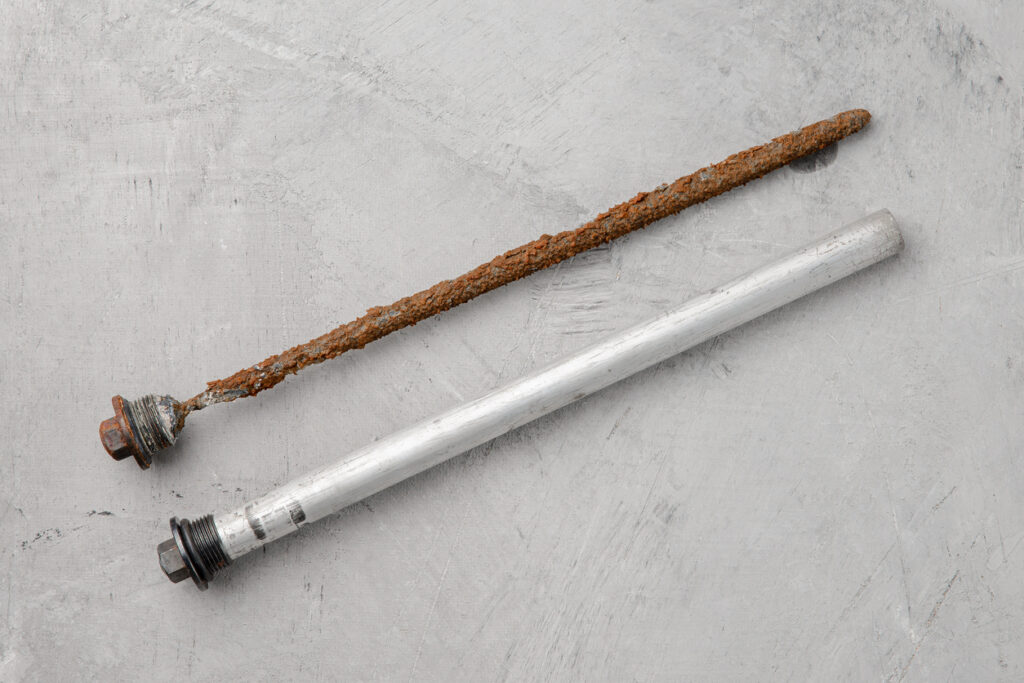While it may not get as much praise and glory as some of the other major appliances in a home, the water heater is undoubtedly one of the most important. It works hard to deliver the hot water you need for showering, bathing, washing dishes, and doing laundry whenever you need it, day or night.
And in order to function properly, your water heater relies heavily on one particular component – the anode rod.
What is an anode rod and why is it so important? We’re glad you asked.
What Is an Anode Rod?
An anode rod (or sacrificial rod) is a long metal rod that runs down the center of a water heater’s tank, protecting it from rust and corrosion by attracting corrosive elements in the water. Put simply, a sacrificial anode rod sacrifices itself to extend the life of the water heater’s tank.

How Does an Anode Rod Work?
An anode rod is made up of magnesium, aluminum, or zinc. These materials are known as the “less-noble” metals, meaning they corrode quickly in water. With a mixture of water, heat, and metal, a water heater tank is the perfect condition for corrosion. The anode rod helps counteract these conditions and extends the life and performance of the water heater by wearing itself down. In short, the anode rod rusts faster than the iron or steel of a tank so the tank doesn’t begin to rust until the metal of the anode rod is completely corroded away. As such, it’s important to inspect the anode rod regularly and replace it before it’s completely corroded.
Types of Anode Rods
Anode rods can be made of magnesium, aluminum, or zinc. Each metal serves a unique purpose depending on a home’s water quality. Aluminum is the material of choice for homes with hard water, as it does the best job of attracting iron, calcium, and magnesium within the water. In homes with soft water, a magnesium anode will work best. A zinc anode rod is used to remove bacteria from a water heater tank and should be used if the water has a sulfur or “rotten egg” smell. There are also alloy rods made of aluminum, magnesium, and zinc combinations.
When Should I Replace the Anode Rod?
It’s essential to have the sacrificial anode rod changed every three to five years to protect your water heater from damage. Most water heater manufacturers recommend inspecting the anode rod every one to three years and replacing it once the minerals have consumed more than 50% of the rod. If a home has hard water, the anode rod will need to be replaced more frequently. Likewise, sodium-based water softeners will accelerate anode rod corrosion due to the trace amounts of salt in the water softener.
Once the anode corrodes fully, the water heater will begin to deteriorate, producing loud noises and popping sounds while heating. If you notice visible rust or cracking on the tank, it’s likely the anode rod need replacing. Water pooling around the water heater may also be an indicator. And finally, if your hot water smells like sulfur or rotten eggs, it’s important to have the anode rod checked immediately.
If you can’t remember the last time you had your water heater inspected or anode rod replaced, contact the home comfort exerts at Pann Home Services & Remodeling. Whether you need water heater repair, replacement, or want to learn more about high efficiency tankless water heaters, give us a call today and say good-bye to you water heater woes.









